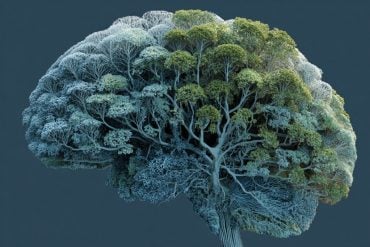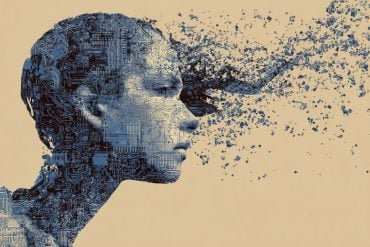Summary: Researchers developed a non-invasive method to profile an individual’s circadian rhythm using a simple saliva sample. Combining molecular analysis and computational modeling, they create a comprehensive portrayal of the body’s internal clock.
This could lead to personalized lifestyle or treatment recommendations aligned with a person’s circadian rhythm. The goal is to improve general health and well-being, especially in disease management such as cancer.
Key Facts:
- The researchers use a saliva sample to identify an individual’s circadian rhythm, which regulates crucial cellular and metabolic processes in the body.
- Understanding personal circadian rhythms can aid in the scheduling of sleep, exercise, and medication intake, potentially improving treatment efficacy and reducing side effects, particularly for cancer patients.
- The method is currently being validated in various clinical trials, aiming to assist physicians in treatment timing and helping individuals adjust their daily activities for better health.
Source: Charite
An interdisciplinary team led by Prof. Angela Relógio, a scientist at Charité’s Molecular Cancer Research Center (MKFZ) and Institute for Theoretical Biology and the MSH Medical School Hamburg, has developed a non-invasive method for profiling a person’s unique circadian rhythm.
Their research is now published in the journal Frontiers in Digital Health.
Starting with a simple saliva sample, the team of experts can create a detailed description of the body’s internal clock by combining molecular analysis and computational modeling.
The goal is to provide personalized recommendations for adjusting lifestyle factors or treatment timing to the circadian rhythm.
“The biological clock, also known as the circadian clock, ticks in virtually every cell of the body,” explains Prof. Angela Relógio.
“It regulates the timing of many cellular and molecular mechanisms, such as cell division or metabolic processes, and plays a vital role in maintaining human health. If the circadian rhythm is disrupted, diseases can develop including sleep disorders, depression, diabetes, neurodegenerative diseases, obesity and cancer.”
Personal rhythm influences health and well-being
Prof. Relógio directs the Circadian Medicine and Systems Biology Group at Charité’s Molecular Cancer Research Center and Institute for Theoretical Biology as well as the Institute for Systems Medicine at the MSH Medical School Hamburg.
In addition to having a background in physical-technological engineering, she also has a doctorate in cell and molecular biology. This rare combination enables her to develop and lead the TimeTeller project.
“Circadian rhythms and thus the timing of molecular processes differ from person to person,” she reports.
“Knowing your personal circadian rhythm and adjusting activities like sleep, exercise and medication intake accordingly can improve your general health and well-being.
“In cancer patients, for example, we suspect that we could optimize treatment efficacy and reduce side effects by adjusting the timing of medical treatment to the individual patient’s circadian rhythm.
“This could improve patients’ quality of life during treatment, while also lowering costs for healthcare systems.”
But how do you read the circadian clock? “We know that every cell in the human body regularly increases and decreases the activity of many genes,” explains Prof. Relógio.
“For example, the genes that control cell division or metabolism are more or less active during certain parts of the 24-hour cycle. Since we assume that all cells in the body work synchronously, we can infer the internal circadian clock by analyzing gene activity in cells in the saliva.”
Clock in cells in the saliva ticks individually and synchronously with other cells’ clocks
So, Prof. Relógio and her team of scientists determined the activity of at least two genes in cells from saliva samples, collected from subjects at different times of the day, using mRNA: the more mRNA-molecules are present, the more frequently the gene was transcribed.
“We then developed a mathematical model that uses the gene activities to calculate when is the best time to exercise, sleep or take medicine,” reports Prof. Relógio.
For example, the scientists were able to successfully predict the optimal time for athletes to train. They also worked with cancer patients, calculating when drugs should best be administered to cause cancer cells to die while minimizing the side effects on healthy cells.
Technology to be validated in clinical trials
“So far, we have retrospectively tested our technology in order to find out whether it could have predicted the observed effects,” explains Prof. Relógio.
“But currently we are involved in different clinical trials to validate our method further. Our goal is to help physicians choose the best time for treatment and to help healthy people adjust their daily activities to their internal clock in order to get or stay healthy.”
“The successful transfer of Prof. Relógio’s research results into a company is a tangible example of the potential that can be unleashed by translational medicine,” says Prof. Christopher Baum, Chair of the BIH Board of Directors and Charité’s Chief Translational Research Officer.
“This requires well-designed partnerships, in this case with Stiftung Charité, and appropriate tools such as the I4H pilot and our DHA program to support motivated and committed innovators.”
“We are extremely pleased for the TimeTeller team,” say Tim Huse and Dorothée Marie-Louise Döpfer of the BIH’s DHA program.
“Their vision, perseverance, and commitment to improving patients’ health and quality of life have really impressed us. We wish the team all the very best and success, and look forward to following their progress.”
About this circadian rhythm research news
Author: Angela Relógio
Source: Charite
Contact: Angela Relógio – Charite
Image: The image is credited to Neuroscience News
Original Research: Open access.
“TimeTeller for timing health: The potential of circadian medicine to improve performance, prevent disease and optimize treatment” by Angela Relógio et al. Frontiers in Digital Health
Abstract
TimeTeller for timing health: The potential of circadian medicine to improve performance, prevent disease and optimize treatment
Circadian medicine, the study of the effects of time on health and disease has seen an uprising in recent years as a means to enhance health and performance, and optimize treatment timing. Our endogenous time generating system -the circadian clock- regulates behavioural, physiological and cellular processes.
Disruptions of the clock, via external factors like shift work or jet lag, or internal perturbations such as genetic alterations, are linked to an increased risk of various diseases like obesity, diabetes, cardiovascular diseases and cancer.
By aligning an individual’s circadian clock with optimal times for performing daily routines, physical and mental performance, and also the effectiveness of certain therapies can be improved. Despite the benefits of circadian medicine, the lack of non-invasive tools for characterizing the clock limits the potential of the field.
TimeTeller is a non-invasive molecular/digital tool for the characterization of circadian rhythms and prediction of daily routines, including treatment timing, to unlock the potential of circadian medicine and implementing it in various settings.
Given the multiple known and potentially yet unknown dependent health factors of individual circadian rhythms, the utility of this emerging biomarker is best exploited in data driven, personalized medicine use cases, using health information across lifestyle, care, and research settings.








